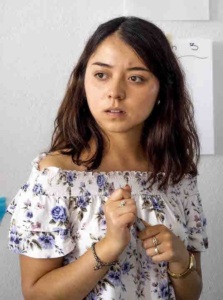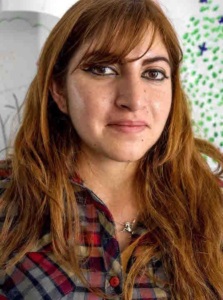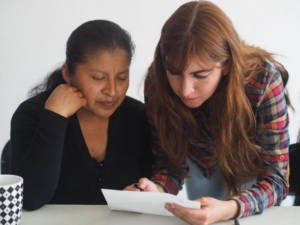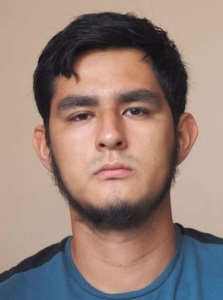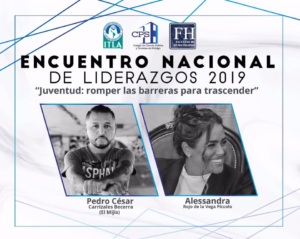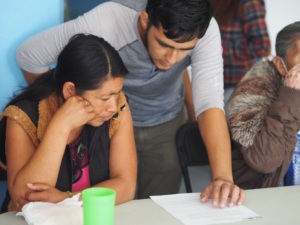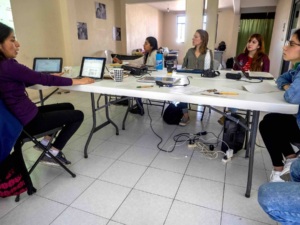1st Report From Field Corps Trainer

On March 30, Nani Szeibert, one of two new trainers of a key element of PSYDEH’s COVID-19 recovery program, the Indigenous Women Field Corps, participated in a Conversational event for women organized by the Tenango de Doria’s municipal government’s “Women Affairs” office, framed in the month dedicated to women. She writes the following report, the first of many PSYDEH will share in the coming months.
I attended as a member of the field team of volunteer foreign trainer collaborators of ‘Psicología y Derechos Humanos A.C., PSYDEH, together with my trainer partner Lic. Mateo Caraballo, and PSYDEH’s general coordinator, psychologist Lic. Jorge Echeverría.
The event was open for all women from Tenango and the region, and presented under the slogan: ‘Una sola voz que une a todas’ (A single voice that unites them all) attracting more than one hundred people who, at two in the afternoon, gathered at the Local Auditorium to start a meeting that facilitated empathy, solidarity, reflection and high emotions among the public.
The main activity consisted of bringing together a team of local professionals who chaired the central table and who gave personal testimony as women who live and work for the empowerment of women, both in their daily lives and in their areas of competence.

On this occasion, the following participated: The Psychologist Adriana Iturbide Licona, Head of the Women’s Instance; Lic. Yareli Gómez Soto, Conciliator Judge; Engineer Ivonne Esbeydi Ortega Delgadillo, Head of Transparency; Lic. Martha Adriana Martínez Retama, Head of Transparency; Professor Irma Sevilla Pérez, Head of Human Resources (Councilor); the Analyst Programmer with Political Training, Ana Luisa Miranda Godinez, Councilor; Karem Dayli González Olguin, Municipal Secretary; Odontologist Yarabi González Martínez, director of DIF and Gerontologist Zayra Daniela Toledino López, Deputy director.
 Something very moving for me was that few minutes before the event began, Lic Iturbide Licona invited me to share the table and my experience with all the participants. With this gesture of generosity, she gave me the opportunity to introduce myself and offer my small input as a Human Rights defender specialized in the Promotion of Gender Equality and collaborate as a member of PSYDEH in this great work that is being carried out from the Presidency of Tenango de Doria.
Something very moving for me was that few minutes before the event began, Lic Iturbide Licona invited me to share the table and my experience with all the participants. With this gesture of generosity, she gave me the opportunity to introduce myself and offer my small input as a Human Rights defender specialized in the Promotion of Gender Equality and collaborate as a member of PSYDEH in this great work that is being carried out from the Presidency of Tenango de Doria.
Before the end of the event, which featured a lively dance, guided by the dance graduate Alma Nayeli Tolentino Licona and a popular meal, Mr. Echeverria, PSYDEH’s general coordinator, addressed those present with a short speech, reinforcing the work commitment that the association has been developing in the region since 2013.
The Indigenous Women Field Corps trained by Ms. Szeibert (and Mr. Caraballo) is one of seven mechanisms that make up PSYDEH’s new COVID-19 program designed in part to support indigenous women leaders and their network of organizations. Other mechanisms include our periodic information series and our new social enterprise Bordamos Juntos.
Selected for a Grant from Global Kroll Charitable Foundation
PSYDEH expands its corporate partnerships to include the global governance, risk, and transparency advisory firm Kroll.
In late-2020, the Kroll Charitable Foundation Committee (then called Duff & Phelps), the giving arm of the firm, selected PSYDEH as one of 22 eligible charities across the globe to receive a pool of grants and volunteer labor. Kroll employees then voted on the amount to be donated to each organization, with the goal of assisting each organization to achieve their environmental, social, and governance goals. PSYDEH is awarded USD $11,000, the only nonprofit chosen from Mexico.
COVID-19 is not kind to the Americas. Ongoing cuts by the Mexican government in funding and support for civil society, complicate matters further. PSYDEH adapts thanks to its seven-resource stream strategy put in place a few years back. The Kroll Charitable Foundation’s grant marks another benchmark in executing this plan. Damon Taylor, PSYDEH’s senior advisor, states,
“PSYDEH’s can-do ethos and volunteer orientation is our DNA; it’s how we have grown over the years and will continue to be a pillar of our work. But, there are limits to what is possible with volunteers without proper funds. We’re therefore thrilled that Kroll chooses to invest in our work and especially excited that they view the investment as the beginning of a multi-year win-win partnership.”
Kroll’s donation helps PSYDEH kick off a multi-pronged 2021-2022 program strengthening indigenous women and their organizations as problem-solvers during/post the pandemic, including by producing micro-economic projects pursuant to local demands.
The Kroll Foundation was established in 2018 to nurture innovative ideas, impact economic and social issues, and enable progress in underserved communities around the globe. The Charitable Foundation Committee selects eligible charities and employees to vote on the amount to be donated as grants and volunteerism to assist these organizations in achieving Environmental, Social, and Governance goals. Since its inception in 2018, the foundation has donated over USD 1.25 million to charities worldwide.
For more information about the alliance, see HERE. For more about PSYDEH or our corporate partnerships program, please contact Senior Advisor Damon Taylor at damontaylor@psydeh.com. Alternatively, you can visit our Corporate Partnership page.
About Kroll
United under the Kroll brand, which includes their endorsed Duff & Phelps businesses, Kroll delivers a seamless experience across their full suite of services, with a cohesive approach to bringing tech-forward solutions to the market. Their goal is to produce greater value for clients and partners along with compelling career opportunities for their people.
Built on the strength and equity of their legacy brands, Kroll is an independent advisory firm with nearly 5,000 professionals in 30 countries and territories around the world.
Collaborating with global law firm Hogan Lovells
PSYDEH is pleased to receive legal support from Hogan Lovells, Mexico City, through TrustLaw, the pro bono program of the Thomson Reuters Foundation in 2020. The outstanding support we’ve been given is led by attorney Lila Alejandra Gasca Enríquez and her team: José Carlos Altamirano Cano, Tayde Bautista Lozano, Marcelo J. Garza G., Rocío Sánchez Arriola-Luna, Dulce S. Vega, Vanessa Vessi.
Hogan Lovells has advised PSYDEH on various matters related to the areas of migration, taxation, the authorized donation regime, and money laundering prevention. In this regard, Jorge Echeverría, general coordinator of PSYDEH, states:
“Working with Lila and her team, José Carlos, Marcelo, Rocío, Vanessa, Tayde and Dulce means having the support of a professional, skilled, reliable, and proactive team. Thanks to them, we have found legal solutions. Hogan Lovells is a solid firm committed to pro bono work and Lila and her team has demonstrated this fact. They are a great ally and have given their valuable support to the Psicología y Derechos Humanos PSYDEH A.C. team.”
To learn more about PSYDEH’s collaboration with Hogan Lovells, click HERE.
Hogan Lovells works together with its clients to solve the toughest legal issues in major industries and commercial centers around the world. For this firm, giving back to communities and society is fundamental to good business. And, it’s part of their core. They are advocates of justice, equality, and opportunity. Everyone at Hogan Lovells is asked to volunteer at least 25 hours a year as part of their normal work duties. Around the world, Hogan Lovells people are making a difference through pro bono program activities, community investment, and social justice.
Building a Global Volunteer Program
How do Mexican grassroots nonprofits secure the resources we need to make a social and economic impact during COVID-19? One of the important elements of our strategy is formalizing and launching our first global volunteer program.
We say “formalize” because to date our ad hoc efforts have been rather successful, especially for a Mexican grassroots NGO of our size. PSYDEH has already managed to attract high-performing collaborators from Australia, Brazil, Mexico, the United Kingdom, and the United States to help us evolve as we do. But we can do and must do better. And we think the pandemic gives us the perfect space and time to smartly institutionalize our effort whereby PSYDEH, local partners, and volunteers win. 
The idea here is to build our program around three pillars pursuant to industry research and collecting information from past volunteers so that we can learn about their experiences and opinions. We want to use their reflections to create a more inclusive and beneficial space for all parties when standing up these three areas of work.
Pillar one uses online volunteer platforms like Chezuba or Idealist to link with remote volunteers wanting to produce small one-off projects.
Pillar two maximizes the potential benefits of bringing on board self-selecting, high-performing professional volunteers who want to make a measured impact via part-or full-time work for 3 or more months.
Pillar three builds on our 2019-2020 collaboration with the Secretaria de Trabajo’s “Jóvenes Construyendo el Futuro” through which we stand up PSYDEH’s “Young Professionals Corps“.
Our volunteer program is being built by our new colleague Mariana Ramirez (MX) in collaboration with Mahathi Kumar (USA), PSYDEH’s special projects coordinator, among others.
We hope to launch it by early fall whereby we meet enthusiastic volunteers from around the world at the nexus of our and local women partner’s needs and volunteers’ experiences, passions, and desires. This, we’ve come to learn over the past few years, is key to a virtuous process through which we all make and enjoy a lasting impact.
Demanding to Know Status of Resources for Indigenous People
In early 2020, Mexican President Andrés Manuel López Obrador said “Organización comunitaria será el eje para la aplicación de recursos y programas federales en las comunidades indígenas” (Community organizing will be the focus for the application of federal resources and programs in indigenous communities). It is now clear that this support does not exist and likely is not forthcoming. For example, the respected Animal Político reports, “Despite the fact that the services of attention to violence against women were declared “essential” during the COVID-19 pandemic, those that attend to indigenous women were left without money by the government in full contingency”.
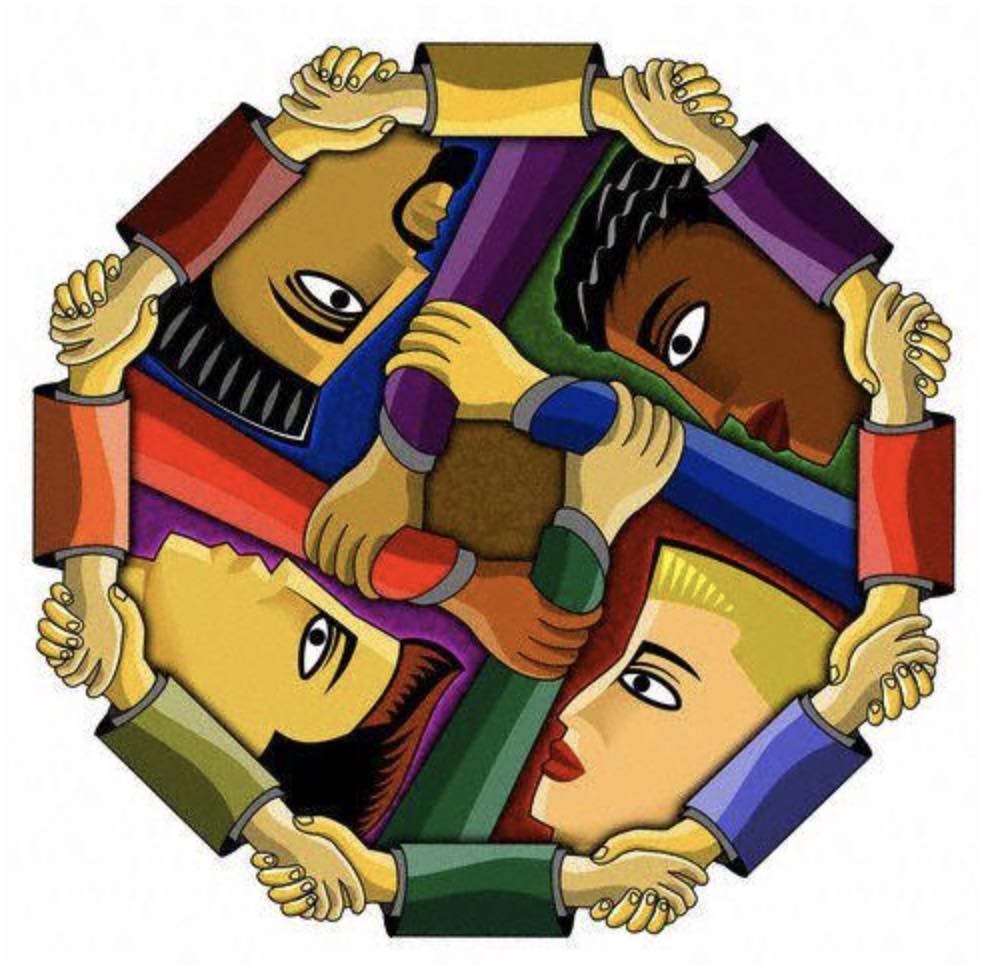 For the last five years, we’ve helped indigenous women partners to organize around their unprecedented Regional Development Agenda with its seven fundamental axes for increasing the wellbeing of families and sustained development of their communities. In the first-quarter 2020, a number of women’s organizations worked with PSYDEH to submit proposals for funding to the Instituto Nacional de los Pueblos Indígenas (INPI).
For the last five years, we’ve helped indigenous women partners to organize around their unprecedented Regional Development Agenda with its seven fundamental axes for increasing the wellbeing of families and sustained development of their communities. In the first-quarter 2020, a number of women’s organizations worked with PSYDEH to submit proposals for funding to the Instituto Nacional de los Pueblos Indígenas (INPI).
One project promotes and develops personal and collective spaces and processes for the prevention and care of domestic violence from the perspective of building new masculinity in young men between the ages of 15 and 20. A second project strengthens indigenous women’s leadership and advocacy capacities. A third project would promote indigenous teen awareness of their rights. Each project is created by women according to their communities’ needs. Then the pandemic hit.
Our partners have since tried to establish communication with INPI authorities. They want to know the status of the resources designated for these kinds of proposals to help indigenous and Afro-Mexican women exercise 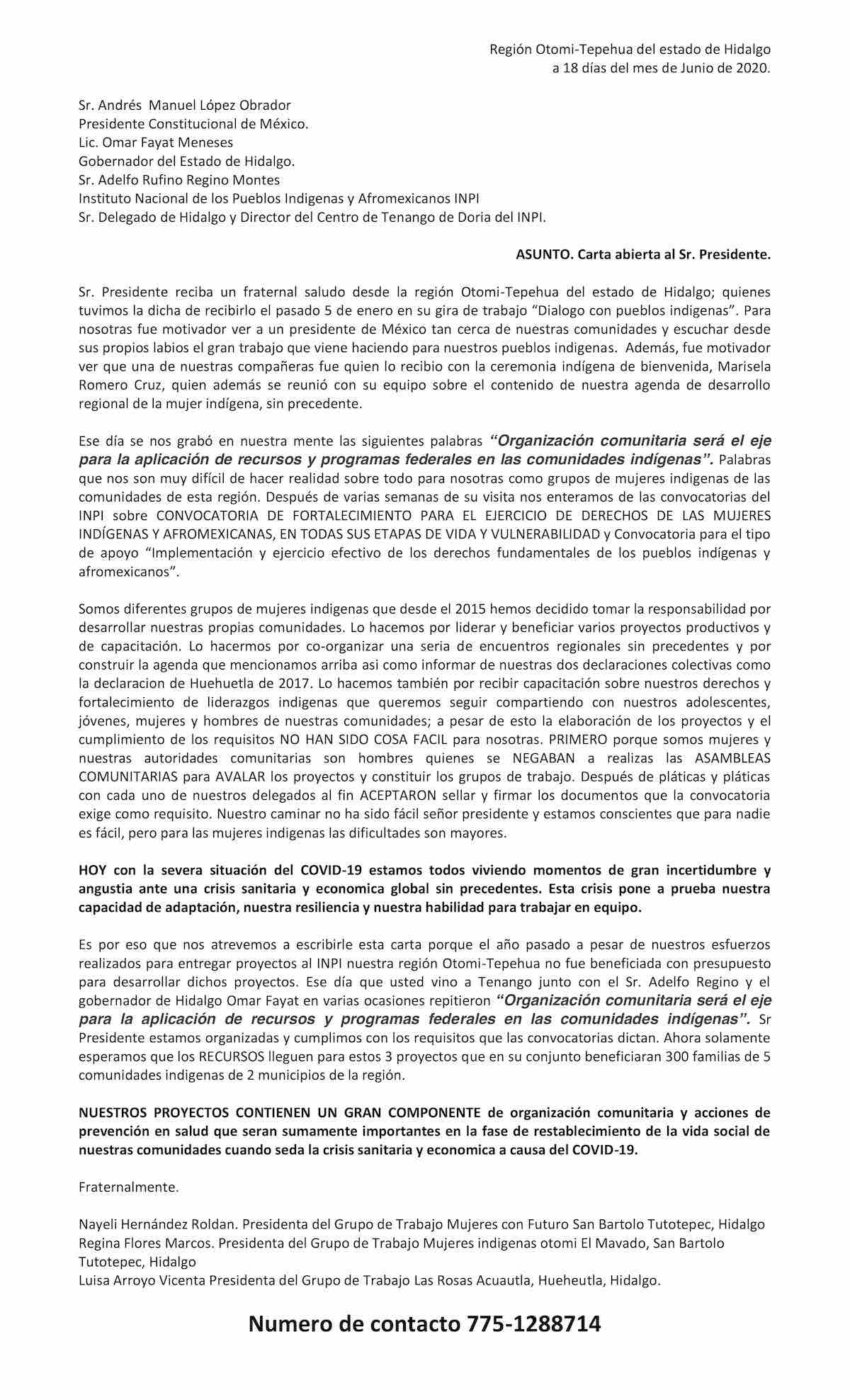 their rights. But they have not yet received any response.
their rights. But they have not yet received any response.
In mid-June, women leaders and PSYDEH sent a letter to President López Obrador demanding clarity on the government’s decisions to suspend funding programs for indigenous peoples. As we write in this letter,
TODAY, with the severe situation of COVID-19, we are all experiencing moments of great uncertainty and anguish in the face of an unprecedented global health and economic crisis. This crisis is testing our ability to adapt, our resilience and our ability to work as a team.
OUR PROJECTS CONTAIN A GREAT COMPONENT of community organization and health prevention actions that will be extremely important in the phase of re-establishing the social life of our communities when the health and economic crisis caused by the COVID-19 subsides.”
Press outreach is another strategy we use to encourage responsible government action in this case. And our efforts are beginning to bear fruit. This article in the regional capital’s newspaper, El Sol de Tulancingo, explains our ongoing outreach efforts.
Strengthening rural and indigenous communities’ capacities to solve their own problems is always important. It is especially so now if we are to emerge from this crisis with communities collectively working together to combat anticipated increased economic and social challenges. We hope that AMLO and his team will be kind enough to respond to this letter and the requests.
Mid-2020 Release Of Book With 30+ Women’s Stories
PSYDEH is thrilled to announce the release of our new narratives e-book funded by our global crowdfunding ‘Fruits of Change’ campaign. This Spanish-language e-book “Narrativas” has 68 high-quality “narrative-oriented” photographs and 30+ stories of indigenous women leaders and their network of organizations we incubate, most in their own words.
See here six featured full stories and here on how you can help us print 150 copies of this first-of-its-kind book in Hidalgo. If we secure the needed funds, each of the 27 woman leaders will get her own copy, PSYDEH reserves 23 for internal use and sells the rest in yet another social enterprise venture to channel all net gain to support more leader and story developing work. We are also in the process of creating an English language translation.
This project answers the call of our indigenous women partners who feel as though their stories and narrative traditions are a crucial part of their heritage and their daily lives, but that their stories are often misrepresented and misunderstood by Mexicans as well as foreigners. PSYDEH uses storytelling as a leadership development tool as well as a marketing tool.
Inaugural “Young Professionals Corps” Ends Well
 On April 15th, PSYDEH completed our inaugural collaboration with the Secretary of Labor and Social Welfare and their program “Jovenes Construyendo el Futuro” (Youth Building the Future).
On April 15th, PSYDEH completed our inaugural collaboration with the Secretary of Labor and Social Welfare and their program “Jovenes Construyendo el Futuro” (Youth Building the Future).
The program’s objective is to link people between 18 and 29 years of age with university degrees but no current studies or jobs with companies, institutions, businesses, and civil society organizations where they can make an impact while developing or strengthening work habits and technical skills to increase their employability. The Secretary of Labor, Luisa Maria Alcalde Lujan, reported that, in this first year of the program, more than 500 civil society organizations had more than 10 thousand vacancies available to young professionals.
To use the resources offered by the new AMLO administration, PSYDEH agreed to stand up a new program we call the “Young Professionals Corps” for three young people from Hidalgo with the goal of training them on skills and competencies needed for human rights-based, community development:
- Luciano de Jesús Martínez, Bachelor of Psychology, Siglo XXI University, Pachuca, Hidalgo
- Marlen Santos Blancas, Bachelor of Law, Universidad Tollancingo, Tulancingo, Hidalgo
- Yarazet Moreno Borjas, Bachelor of Arts in Gerontology, Universidad Autónoma del Estado de Hidalgo, Pachuca, Hidalgo.
Jesus, Marlen, and Yarazet were invited to focus in different work areas, e.g. digital communications, public and international relations, and fieldwork, making meaningful contributions in our first comprehensive impact evaluation, university outreach. They also helped with our 2019 INE project including the 5th regional forum of indigenous women, as well as novel storytelling and embroidery initiatives. And they represented PSYDEH at the 2019 National Leadership Meeting: Youth: Breaking Barriers to Transcend and brought back learning to share with our staff.
PSYDEH designed the program to be a win-win collaboration.

For Corps members, all three young professionals used their PSYDEH experience to find current paid work in line with their ideals and profession. All three had their first professional experience working across professional sectors and cultures as can be seen in this short video, having left with personal contacts in the field and members of our global team. Some even continue to help women with myriad tasks, e.g., Marlen advises a woman on a legal issue!
For PSYDEH, our already diverse staff was enriched by their unique perspectives and skills as young Hidalgans from different professional fields. For example, Yarazet was instrumental in helping us to create myriad bilingual digital communications tools, including this website. They also helped us create the elements we need to improve in future collaboration: the terms of reference format for each professional, a virtuous communication process between the Tulancingo-based young people and our CDMX team, a performance evaluation system, and online post-experience questionnaire.
With Cohort TWO in 2020-2021 (if the government funds the program), we again welcome young professionals to our Tulancingo office. We also are open to young people joining our virtual, multinational team based out of our CDMX office. Together, Mexicans and foreigners will work hand-in-hand with a single objective: “To strengthen indigenous women leaders for sustainable development in their communities in the Otomi-Tepehua region of the state of Hidalgo.”
Neutrality Paradox & Smart Investments in The Americas
PSYDEH was one of four non-profits from around the world, the only one from Latin America, invited by US-based GlobalGiving (GG) in October 2019 to convene in Washington, DC, USA with 20 others from the philanthropy sector to explore what GG calls the “Neutrality Paradox”, a multi-year project produced in collaboration with the Bill & Melinda Gates Foundation, among others, to help global and national platforms navigate complicated questions of fair access.
In late-March 2020, PSYDEH was again selected as one of only three nonprofits to participate in the GG Neutrality Paradox Design Sprint, the only from the Americas. Over the last three weeks, a team of 12 people comprised of GG staff and friends and their nonprofit partners virtually worked through what GG called their Design Sprint. The multi-week collaboration explored how the GG platform and its stakeholders could benefit from new GG products and services in the context of the Neutrality Paradox. At Sprint-end, each participant proposed a concept that GG can employ to smartly confront the Neutrality Paradox dilemma. Mahathi Kumar, PSYDEH’s Coordinator of Special Projects and PSYDEH’s representative in the Design Sprint says,
“The Design Sprint was a fascinating collaboration with people from different backgrounds. The Neutrality Paradox concept can be approached from multiple angles and the vastly different concepts that we all produced is a testament to that. It was an honor for PSYDEH to be a voice for grassroots Global South nonprofits.”
For PSYDEH’s part, we proposed this animatronic, an extension of our series of proposals made to GG’s projects team earlier in Spring 2020.
We have since banded together with the other two nonprofit partners from Africa to formally recommend that GG prioritize one or more of the nonprofit ideas when deciding which will be fleshed out in 2020-2021.
Our First Comprehensive Program Impact-Evaluation
PSYDEH has completed our first comprehensive feedback evaluation of our multi-year, process-oriented program model.
After graduating from USA-based GlobalGiving’s Social Impact Academy, and consistent with our listen, learn, act ethos, we used in-person interviews and electronic surveys to secure qualitative and quantitative feedback from these target stakeholders:
- rural indigenous beneficiary-partners in 2015 (rough baseline data) and 2019, and
- Mexican and international staff and volunteers.
We now have updated, complete demographics of our local partners. We better understand the ways in which our program model impacts these partners and their communities. We also learned from volunteer-and paid-staff the ways in which we impact them, as well as their many useful observations about their experiences with PSYDEH. We identified areas in which we need to improve internal processes and fieldwork. And we have helpful lessons learned on how to conduct our next impact evaluation.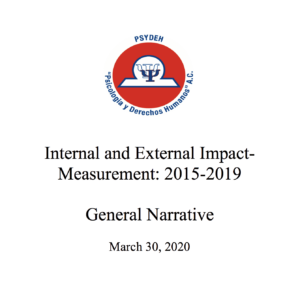
Some key takeaways:
- Most women-partners feel like PSYDEH’s work makes them better leaders
- 100% of women-partners feel that PSYDEH’s work respects them and their communities
- The large majority of women-partners state that our activities are needed
- 89% of PSYDEH’s team states that PSYDEH is transparent with decision-making and resource use
- 100% of PSYDEH’s feel that their work with PSYDEH was worthwhile
- We need to improve how we communicate our needed work
- We need to deliver more resources to local communities, e.g., high-impact projects, training, and permanent field staff
Moving forward, we’re trying to understand how best to use the evaluation’s data to embrace strengths and address weaknesses in our fieldwork and internal organizational systems and processes.
Ideation on How to Increase Impact in the Global South
GlobalGiving (GG) leadership facilitated a Spanish-language, breakout session with their Mexico network of 130+ nonprofits after the GG 2020 town hall meeting in late-January 2020. GG leaders asked Mexican nonprofits for ideas on ways they can invest impact-oriented resources in lieu of campaign monetary awards.
PSYDEH serves as Mexican National Mentor, and our last five years of growth are a case example of what is possible for local-focused nonprofits with the right human and monetary resources. Mahathi Kumar, PSYDEH’s USA-based special projects coordinator, with moral support from Roisin McAuley, our Scottish strategic communications consultant, proposed these three pilot project idea areas:
(1) corporate connections
(2)”on the ground” professional consulting
(3) freelance professional services
Each suggested project is designed around existing GG tools with an eye to helping Global South partners to amplify our own voices AND leverage these voices into more resources. As Mahathi explained to 20+ GG staff during the call, “
We believe/know that GG nonprofit partners like PSYDEH face different challenges than bigger organizations. In Mexico, we suffer through a tough public funding climate. 2018 was a political election year; existing funding was largely directed to political-party aligned nonprofits. Currently, the Mexican federal government has cut almost all public funding for civil society. COVID-19 affects private funding streams. For example, we’ve recently lost anticipated significant funding from two different funders with whom we’ve been negotiating for months. Our small-donor network is fully exhausted. We simply have not reached the tipping point where funds secured result in the team we need to build a larger network and/or viral donor movement.
Yet, we see these roadblocks as opportunities to Listen. Act. Learn. Repeat. And GG can play a critical role in helping us, all Global South outfits, succeed, and not necessarily just through more money… [We just need] a hand up, not a handout. We’ll do the rest.”
New Article on PSYDEH 8-step Program Model
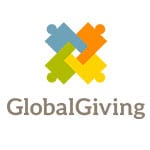 USA-based GlobalGiving has just published the article “8 Steps to Community-Led Development that Work for my Team in Mexico” in their LEARN series. It is authored by PSYDEH’s Senior Advisor, Damon Taylor, with editing by PSYDEH’s Special Project Coordinator Mahathi Kumar.
USA-based GlobalGiving has just published the article “8 Steps to Community-Led Development that Work for my Team in Mexico” in their LEARN series. It is authored by PSYDEH’s Senior Advisor, Damon Taylor, with editing by PSYDEH’s Special Project Coordinator Mahathi Kumar.
The piece  explains how PSYDEH crafts a process that empowers vulnerable communities in democracies to create solutions to local problems. It also provides various online resources organizations can reference when trying to understand more fully each step of the model. As Mr. Taylor explains in the article,
explains how PSYDEH crafts a process that empowers vulnerable communities in democracies to create solutions to local problems. It also provides various online resources organizations can reference when trying to understand more fully each step of the model. As Mr. Taylor explains in the article,
“Developing understanding in community is fundamental to information exchange with vulnerable populations. A central theme of Paolo Freire’s thinking on Educación Popular is “whoever teaches learns, and whoever learns teaches.” In practice, we suggest incorporating three elements into your constant education-oriented work. First, embrace that local partners possess needed knowledge, as well as innate and learned capacities. Second, ensure that all are both seen as teachers and students and speak the same language, literally and figuratively. Third, educate with action and skills in mind: Understand and use economic and political rights embedded in laws, promote free electoral processes, produce micro-projects, learn and live civic-leader disciplines and autonomy.”
GG’s LEARN series is centered around the idea that successful nonprofits “Listen, Act, Learn. Repeat.”
Selected for 2020 Project of the Month Club
 PSYDEH is thrilled to be chosen by GlobalGiving (GG), the world’s leading nonprofit crowdfunding platform, as one of only 12 organizations to participate in their 2020 Project of the Month Club (POMC).
PSYDEH is thrilled to be chosen by GlobalGiving (GG), the world’s leading nonprofit crowdfunding platform, as one of only 12 organizations to participate in their 2020 Project of the Month Club (POMC).
Claire Hilton, GG Marketing & Communications staffer, states, “PSYDEH was chosen by GlobalGiving staff to receive this honor out of 3000+ other nonprofit partners! Being chosen for POMC is proof that [PSYDEH] excels at your due diligence requirements and is proving impact in your community.” The criteria GG staff used when voting for PSYDEH’s sustainability project as January’s high-impact project include: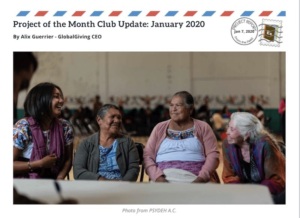
- Actively demonstrates a high level of effectiveness and engagement with the GlobalGiving community
- Provides regular high-quality, substantive, and informative project reports to donors
- Has the capacity to absorb the generous funding from Project of the Month gifts
- Has not before been featured as a Project of the Month on GlobalGiving
POMC membership benefits include much-needed marketing across GG’s global network and monthly investment in our project split among the 12 POMC members.
PSYDEH Senior Advisor Damon Taylor explains that POMC funds will supplement 2020 work. “Sustained impact lies at the heart of PSYDEH’s work strategy and spending. This donation will help PSYDEH to hire a Coordinator of Sustainability and maybe even a Coordinator of Social Impact–who help us leverage the POMC investment into successfully diversifying funding streams in 2020-2021, finally securing our tax-deductible status in Mexico, and creating the social impact data points we need to improve as an organization and attract win-win collaborations.”
GG’s POMC reflects GG’s desire to lift up nonprofit partners that show they value feedback from their community and are doing their best to be a community-led organization. POMC membership affirms that PSYDEH is seen by a global audience that our work is integrated with community needs and values.



